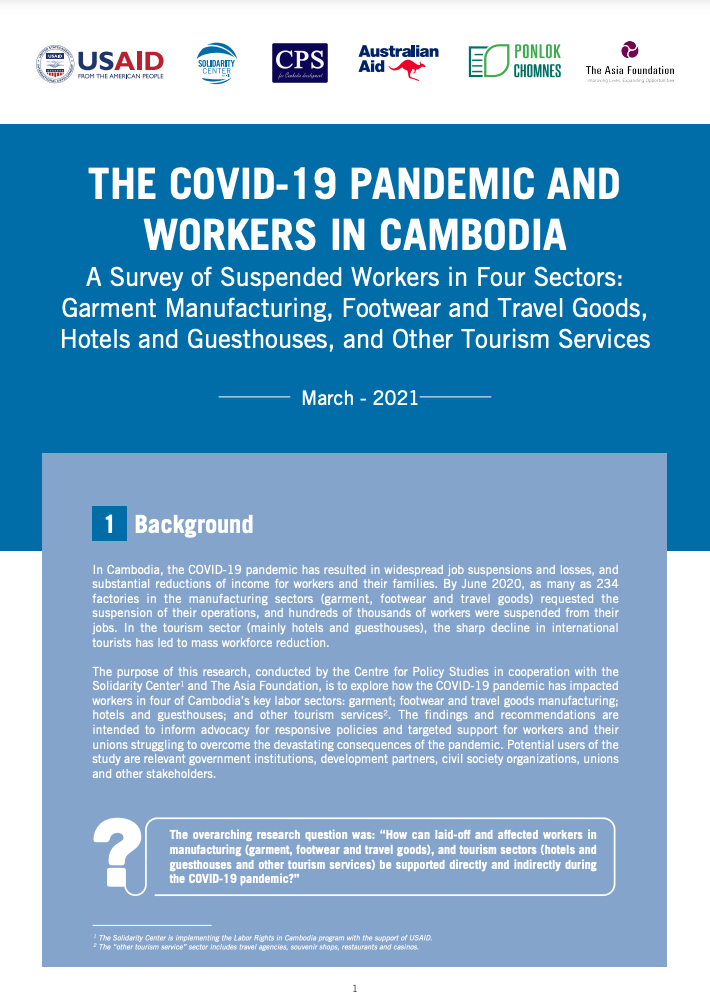In Cambodia, the COVID-19 pandemic has resulted in widespread job suspensions and losses, and substantial reductions of income for workers and their families. By June 2020, as many as 234 factories in the manufacturing sectors (garment, footwear and travel goods) requested the suspension of their operations, and hundreds of thousands of workers were suspended from their jobs. In the tourism sector (mainly hotels and guesthouses), the sharp decline in international tourists has led to mass workforce reduction.
The purpose of this research, conducted by the Centre for Policy Studies in cooperation with the Solidarity Center and The Asia Foundation, is to explore how the COVID-19 pandemic has impacted workers in four of Cambodia’s key labor sectors: garment; footwear and travel goods manufacturing; hotels and guesthouses; and other tourism services. The findings and recommendations are intended to inform advocacy for responsive policies and targeted support for workers and their unions struggling to overcome the devastating consequences of the pandemic. Potential users of the study are relevant government institutions, development partners, civil society organizations, unions and other stakeholders.

